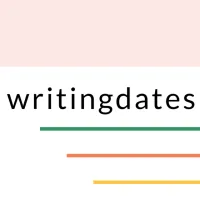Get the FREE Workbooks for this month - A playful and structured guide to cultivate a new writing practice
WELCOME, dear fellow writer
A place to reconnect with the joy of writing
&
Playful ways to lighten the mental load
For Playful Writing - visit here |
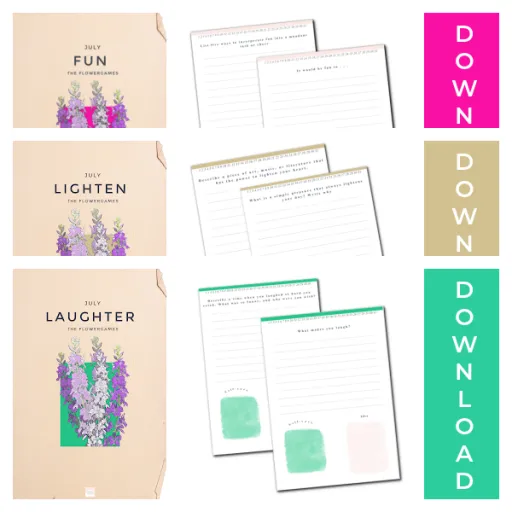
From the Journal
Here I share some of my entries to inspire you to let journaling become a part of your own daily practice.
+ free journal pages
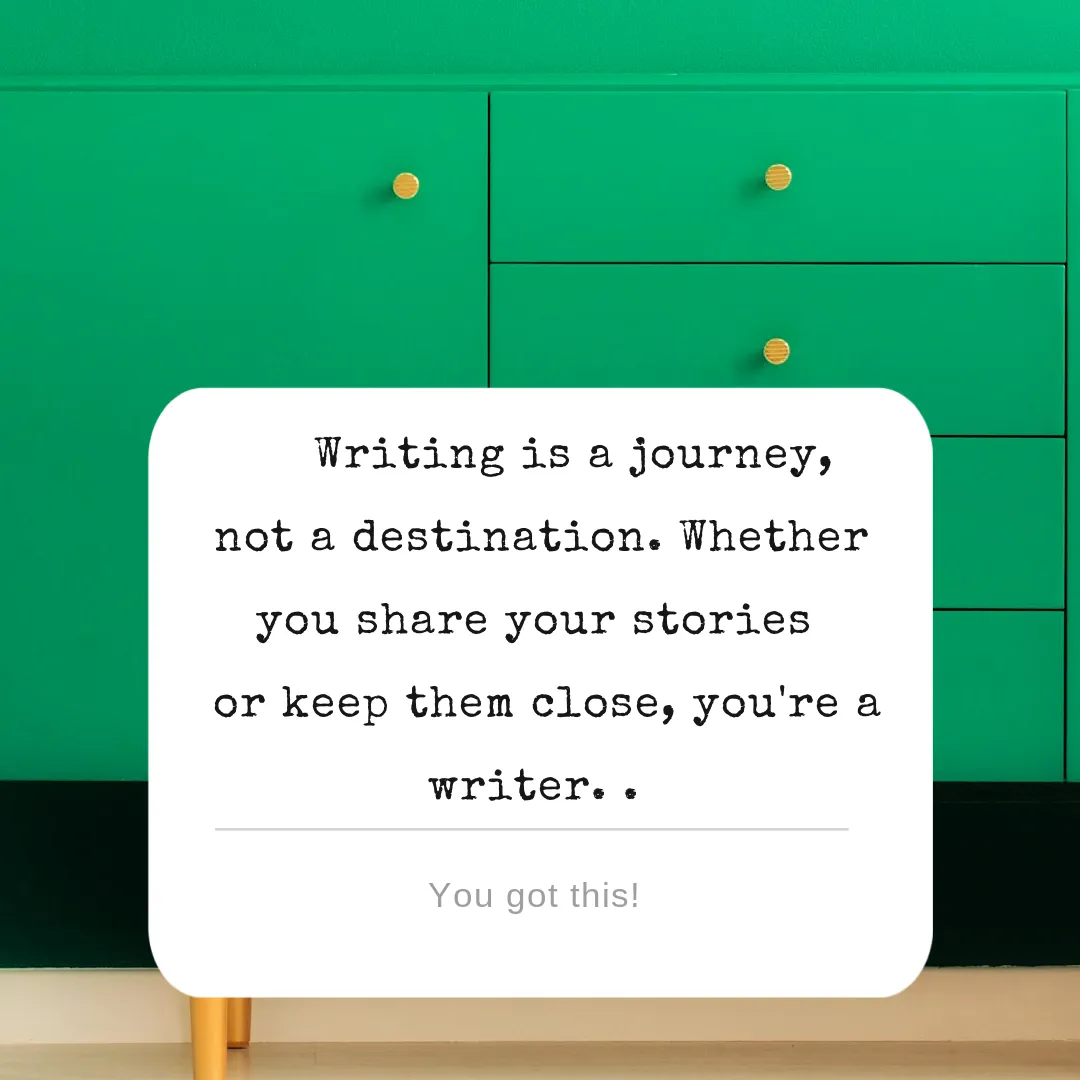
From the Library
The library is where you will find all my blog posts on how to enhance and enchant your daily writing practice
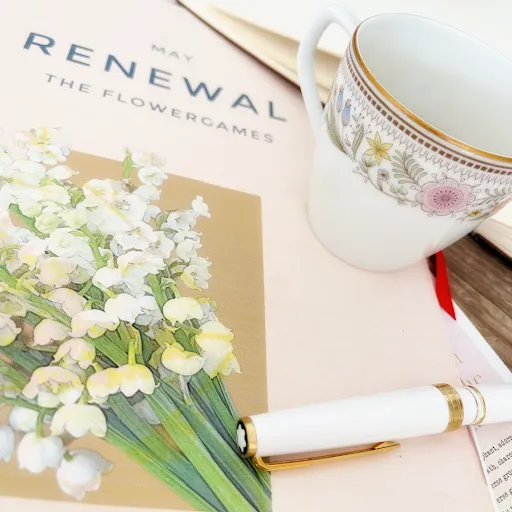
From the Seasonal Hub
Home of the Flower Games
a free monthly invitation to write with a flower
Cultivate a New Writing Practice
From the comfort of your own home, dive into a writing practice, to restore and replenish your inspiration with free monthly workbooks, and become and feel like a writer who writes.
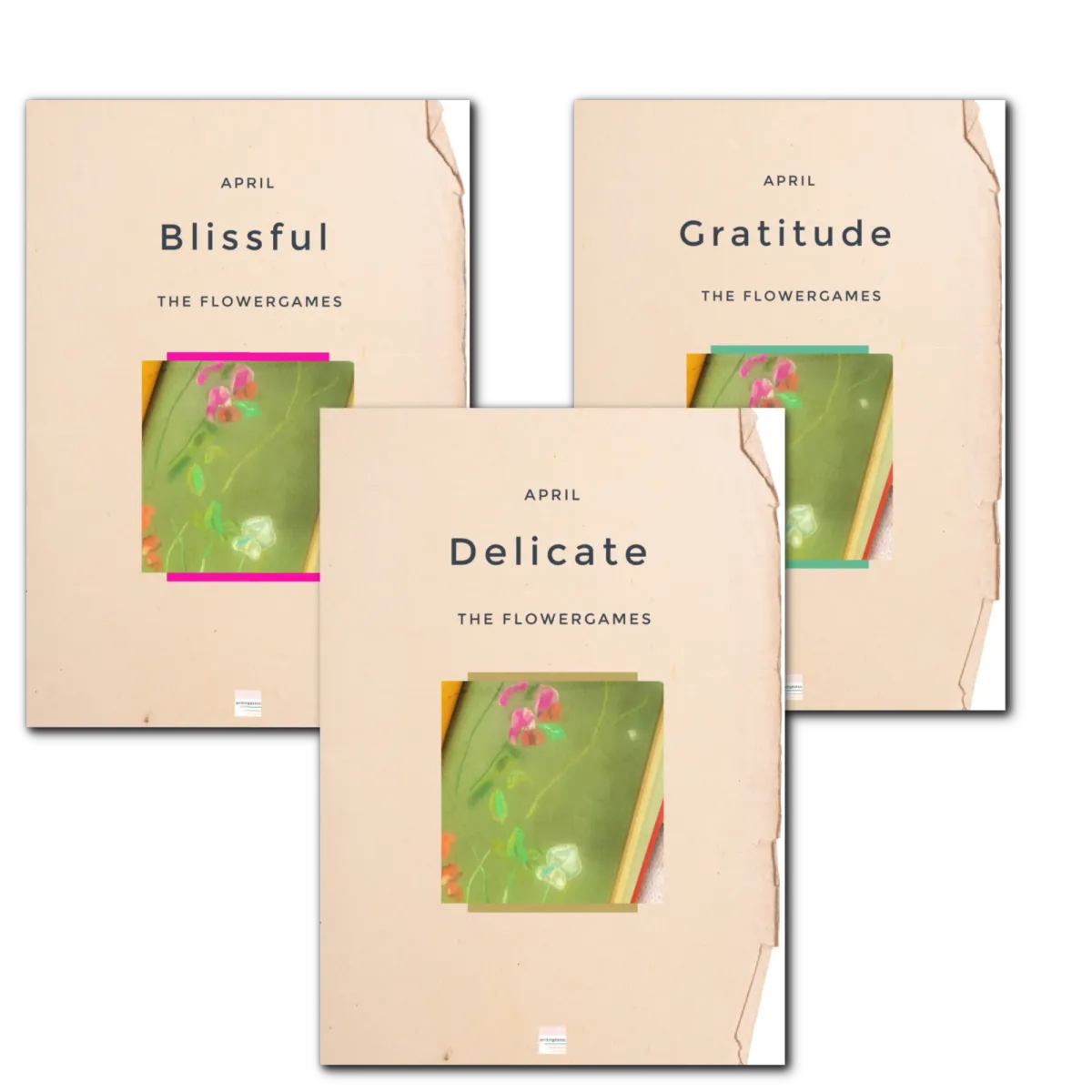
JOIN || THE FLOWERGAMES
A Free Home Practice for Writing

From Devotion to Declaration: Follow the Clues to Creativity
From Devotion to Declaration: Follow the Clues to Creativity
From Devotion to Declaration: Follow the Clues to Creativity
From Devotion to Declaration: Follow the Clues to Creativity
How to Cultivate Devotion to Writing:
Dedication: Tending a Writing Practice
Tips for Staying Dedicated to Writing:
Detective Time: Following the Clues to Creativity
How to Use a Detective Approach to Writing:
This is the first blog post in a while. Perhaps that is why I am having trouble writing it. I want it to cover everything, pen in hand.
At the beginning of this year, what I needed most was stillness—a quiet space where I could light a candle, watch the flicker of the flame, and listen to the barely audible scratch of my pen gliding across the paper.
It was in this ritual of silence that I reconnected. Writing never truly leaves me, but it can dwindle, buried beneath the weight of daily obligations. If you, too, have felt distant from your writing, this post is for you. Let’s walk together from devotion to declaration, rekindling our creative commitment.
Devotion: Cultivate the Craft of Writing
Every great endeavor begins with devotion—a deep commitment to something that stirs the soul. Writing is no different.
In those early days of returning to writing, I revisited a personal pledge. I modified it slightly, shaping it into a vow that would guide me back:
“With pen and paper in hand, I solemnly swear to lift my spirit by entering the realm of storytelling. Here, I walk with an open heart to hear and listen to the voices of untold songs. With pen and paper, I take the creative’s oath to return once again and write the story I am here to tell.”
This over the top but playful declaration serves as my anchor. It reminds me that writing is not just an activity; it is a calling.

How to Cultivate Devotion to Writing:
Create a sacred writing space with objects that inspire you (candles, flowers, favorite books).
Establish a ritual—something small but meaningful—to signal to your brain that it’s time to write.
Keep a journal where you jot down thoughts, dreams, or even single words that capture your mood.
Read the works of authors who inspire you and remind you why you love storytelling.
Dedication: Tending a Writing Practice
With devotion comes the need for practice. Dedication is where the magic happens—the space where dreams meet discipline. But I have a habit of overcomplicating things, which is why I chose “clarity” as my guiding word for March. I craved more clarity about my blog, my speculative fiction novel, and the rhythm of my writing days.
Writing regularly doesn’t mean writing perfectly. It simply means showing up. Even if it’s just for ten minutes. Even if all you write is a single sentence.
Tips for Staying Dedicated to Writing:
Set small, achievable writing goals (e.g., “Write 300 words a day”).
Use a planner to track progress and keep yourself accountable.
Change up your environment—write in a coffee shop, park, or library for a fresh perspective.
Set a timer and challenge yourself to a short, focused writing sprint.
Reward yourself for milestones—treat yourself to a special book, a favorite dessert, or a relaxing break.
Detective Time: Following the Clues to Creativity
I have always loved mysteries. As a young adult, I devoured Agatha Christie novels. While I don’t read as many crime novels now, I do love British crime TV series. Lately, I’ve been watching Castle for the first time, and it has rekindled my
Perhaps that’s why I’ve entertained the idea of approaching my writing like an investigator. Instead of forcing ideas, I search for clues. I jot down thoughts on a whiteboard, let curiosity guide me, and see where the connections lead. Some clues point to my novel, others to blog ideas, and some remain enigmatic, waiting for their meaning to unfold.
If you feel lost in your writing, try embracing a detective mindset. Become an investigator of your own creativity.
How to Use a Detective Approach to Writing:
🔎 The Clue Hunt – Treat your story like a mystery waiting to be solved. Scatter “clues” around your writing space—sticky notes with random words, quotes from favorite books, or intriguing snippets of overheard conversations. Challenge yourself to connect the dots between them and create a story.
🕵️♀️ The Red Herring Game – Intentionally write a scene with a twist that turns out to be misleading—like a classic detective novel red herring! Then, go back and revise to make it more surprising.
📂 The Case File Method – Create a “case file” for your story with character dossiers, newspaper-style clippings, and a crime scene board filled with connections. Seeing your story visually mapped out can lead to surprising revelations.
🏠 Investigate a Character’s Secrets – Every character has secrets. Write an “interrogation” scene where you, as the detective, question your main character. Ask them tough questions, uncover their backstory, and figure out what they’re hiding (even from you).
🗂 The Secret Message Challenge – Write a scene where a hidden message is embedded—either in dialogue, descriptions, or an object in the setting. Make it subtle, then reread it later to see if you can still spot the hidden meaning!
Declaration: Committing to Your Creative Vision

My speculative fiction novel has been years in the making. I have started and stopped more times than I can count. This time, I want to keep my enthusiasm alive. So, I made a declaration:
By May 31st, my second draft will be finished.
A declaration feels different from a goal—it’s more than just an intention; it’s a commitment to something that truly matters to me. It’s my way of telling both the universe and myself that I am serious about my creative work. And honestly, that scares me. But I’ve come to realize that fear is part of the process. Saying something out loud, writing it down, sharing it—it makes it real.
When I keep my aspirations to myself, they feel safer, but also more distant, like something I’ll get to "someday." But when I declare them, they take shape. They become something I can’t ignore. It’s not just about accountability—it’s about making a promise to myself that my creativity is worth showing up for.
If you have been waiting for the “perfect time” to write, let this be your sign. Make your own declaration.
How to Commit to Your Writing Vision:
Spruce up your writing space—make it inviting and inspiring.
Use tools like Scrivener, Notion, or a simple notebook to organize ideas.
Set deadlines and remind yourself why your story matters.
Celebrate small wins, like finishing a chapter or writing consistently for a week.
Final Thoughts
Writing is an act of devotion, dedication, and declaration. It requires us to show up, to be present with our thoughts, and to trust the process.
If you have been waiting for the right moment to start (or restart) your writing journey, let this be it. Light a candle. Open your notebook. Begin again.
And if you feel like it here is a free printable with space to write down your own pledge or declaration:

What is your writing declaration? Share it in the comments—I’d love to hear about your creative journey!
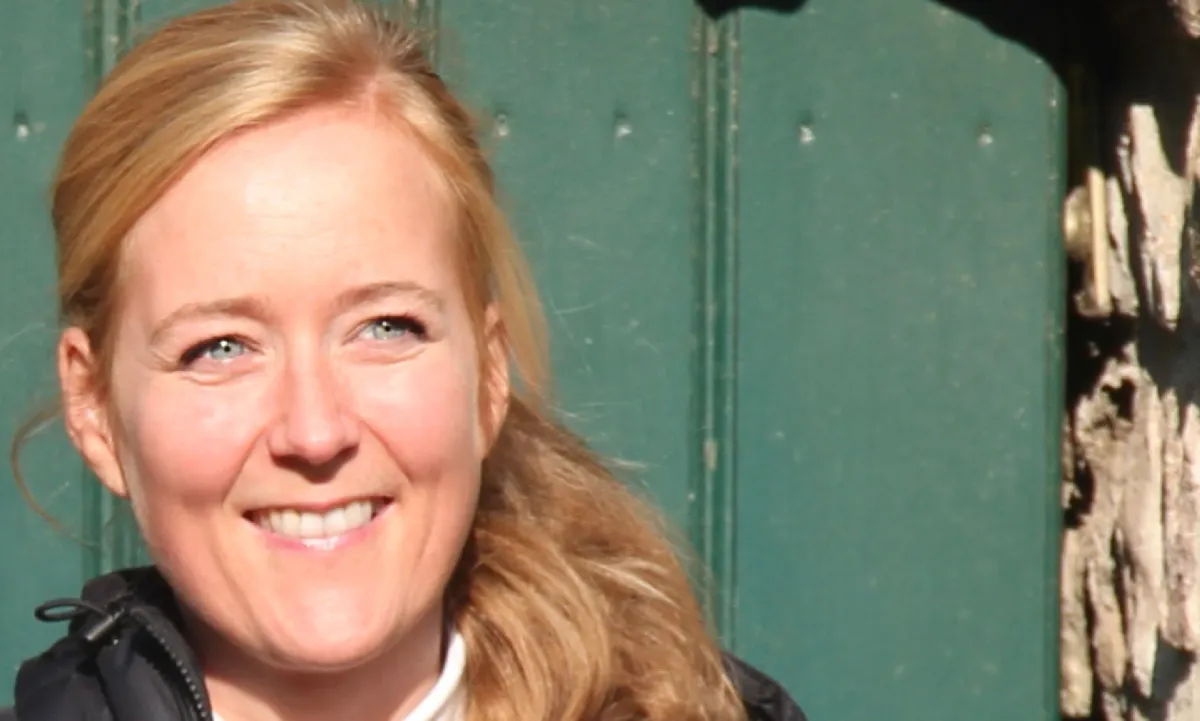
My name is Betina and I am a writer and the creator of Writingdates. I am a multipassionate gemini and always guided by the love of stories.
I write to ground and connect. I write to fly and soar free.
I write because of beauty, truth, freedom and love
- THE MUSEFUL SCRIBE

Whenever you need some inspiration for your writing adventure come and visit the Library.
Here you can browse the library of the Museful Scribe with articles and printables on everything writing
The Library

From Devotion to Declaration: Follow the Clues to Creativity
From Devotion to Declaration: Follow the Clues to Creativity
From Devotion to Declaration: Follow the Clues to Creativity
From Devotion to Declaration: Follow the Clues to Creativity
How to Cultivate Devotion to Writing:
Dedication: Tending a Writing Practice
Tips for Staying Dedicated to Writing:
Detective Time: Following the Clues to Creativity
How to Use a Detective Approach to Writing:
This is the first blog post in a while. Perhaps that is why I am having trouble writing it. I want it to cover everything, pen in hand.
At the beginning of this year, what I needed most was stillness—a quiet space where I could light a candle, watch the flicker of the flame, and listen to the barely audible scratch of my pen gliding across the paper.
It was in this ritual of silence that I reconnected. Writing never truly leaves me, but it can dwindle, buried beneath the weight of daily obligations. If you, too, have felt distant from your writing, this post is for you. Let’s walk together from devotion to declaration, rekindling our creative commitment.
Devotion: Cultivate the Craft of Writing
Every great endeavor begins with devotion—a deep commitment to something that stirs the soul. Writing is no different.
In those early days of returning to writing, I revisited a personal pledge. I modified it slightly, shaping it into a vow that would guide me back:
“With pen and paper in hand, I solemnly swear to lift my spirit by entering the realm of storytelling. Here, I walk with an open heart to hear and listen to the voices of untold songs. With pen and paper, I take the creative’s oath to return once again and write the story I am here to tell.”
This over the top but playful declaration serves as my anchor. It reminds me that writing is not just an activity; it is a calling.

How to Cultivate Devotion to Writing:
Create a sacred writing space with objects that inspire you (candles, flowers, favorite books).
Establish a ritual—something small but meaningful—to signal to your brain that it’s time to write.
Keep a journal where you jot down thoughts, dreams, or even single words that capture your mood.
Read the works of authors who inspire you and remind you why you love storytelling.
Dedication: Tending a Writing Practice
With devotion comes the need for practice. Dedication is where the magic happens—the space where dreams meet discipline. But I have a habit of overcomplicating things, which is why I chose “clarity” as my guiding word for March. I craved more clarity about my blog, my speculative fiction novel, and the rhythm of my writing days.
Writing regularly doesn’t mean writing perfectly. It simply means showing up. Even if it’s just for ten minutes. Even if all you write is a single sentence.
Tips for Staying Dedicated to Writing:
Set small, achievable writing goals (e.g., “Write 300 words a day”).
Use a planner to track progress and keep yourself accountable.
Change up your environment—write in a coffee shop, park, or library for a fresh perspective.
Set a timer and challenge yourself to a short, focused writing sprint.
Reward yourself for milestones—treat yourself to a special book, a favorite dessert, or a relaxing break.
Detective Time: Following the Clues to Creativity
I have always loved mysteries. As a young adult, I devoured Agatha Christie novels. While I don’t read as many crime novels now, I do love British crime TV series. Lately, I’ve been watching Castle for the first time, and it has rekindled my
Perhaps that’s why I’ve entertained the idea of approaching my writing like an investigator. Instead of forcing ideas, I search for clues. I jot down thoughts on a whiteboard, let curiosity guide me, and see where the connections lead. Some clues point to my novel, others to blog ideas, and some remain enigmatic, waiting for their meaning to unfold.
If you feel lost in your writing, try embracing a detective mindset. Become an investigator of your own creativity.
How to Use a Detective Approach to Writing:
🔎 The Clue Hunt – Treat your story like a mystery waiting to be solved. Scatter “clues” around your writing space—sticky notes with random words, quotes from favorite books, or intriguing snippets of overheard conversations. Challenge yourself to connect the dots between them and create a story.
🕵️♀️ The Red Herring Game – Intentionally write a scene with a twist that turns out to be misleading—like a classic detective novel red herring! Then, go back and revise to make it more surprising.
📂 The Case File Method – Create a “case file” for your story with character dossiers, newspaper-style clippings, and a crime scene board filled with connections. Seeing your story visually mapped out can lead to surprising revelations.
🏠 Investigate a Character’s Secrets – Every character has secrets. Write an “interrogation” scene where you, as the detective, question your main character. Ask them tough questions, uncover their backstory, and figure out what they’re hiding (even from you).
🗂 The Secret Message Challenge – Write a scene where a hidden message is embedded—either in dialogue, descriptions, or an object in the setting. Make it subtle, then reread it later to see if you can still spot the hidden meaning!
Declaration: Committing to Your Creative Vision

My speculative fiction novel has been years in the making. I have started and stopped more times than I can count. This time, I want to keep my enthusiasm alive. So, I made a declaration:
By May 31st, my second draft will be finished.
A declaration feels different from a goal—it’s more than just an intention; it’s a commitment to something that truly matters to me. It’s my way of telling both the universe and myself that I am serious about my creative work. And honestly, that scares me. But I’ve come to realize that fear is part of the process. Saying something out loud, writing it down, sharing it—it makes it real.
When I keep my aspirations to myself, they feel safer, but also more distant, like something I’ll get to "someday." But when I declare them, they take shape. They become something I can’t ignore. It’s not just about accountability—it’s about making a promise to myself that my creativity is worth showing up for.
If you have been waiting for the “perfect time” to write, let this be your sign. Make your own declaration.
How to Commit to Your Writing Vision:
Spruce up your writing space—make it inviting and inspiring.
Use tools like Scrivener, Notion, or a simple notebook to organize ideas.
Set deadlines and remind yourself why your story matters.
Celebrate small wins, like finishing a chapter or writing consistently for a week.
Final Thoughts
Writing is an act of devotion, dedication, and declaration. It requires us to show up, to be present with our thoughts, and to trust the process.
If you have been waiting for the right moment to start (or restart) your writing journey, let this be it. Light a candle. Open your notebook. Begin again.
And if you feel like it here is a free printable with space to write down your own pledge or declaration:

What is your writing declaration? Share it in the comments—I’d love to hear about your creative journey!
Get the latest free printable from the Library
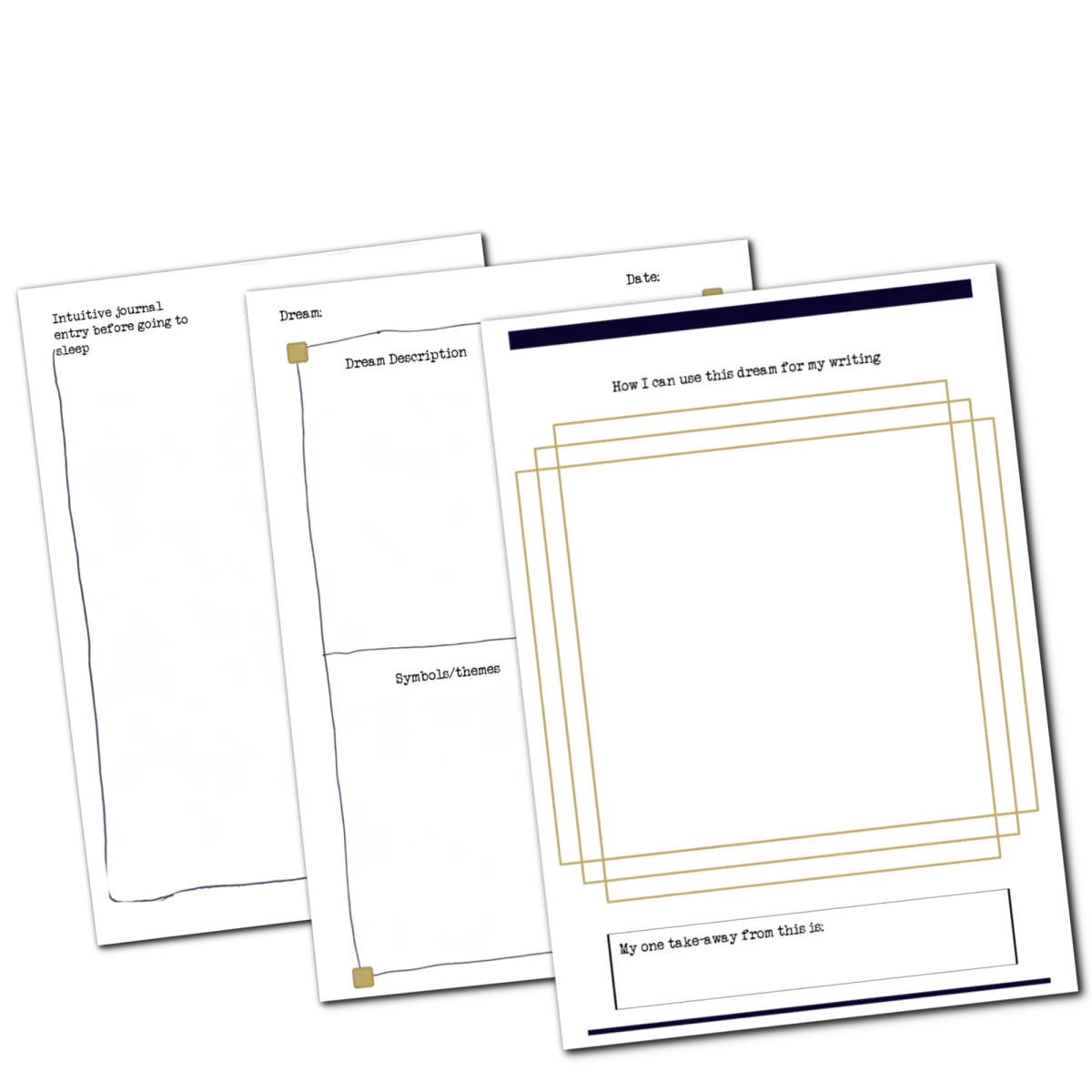
© Copyright 2025 Writingdates
